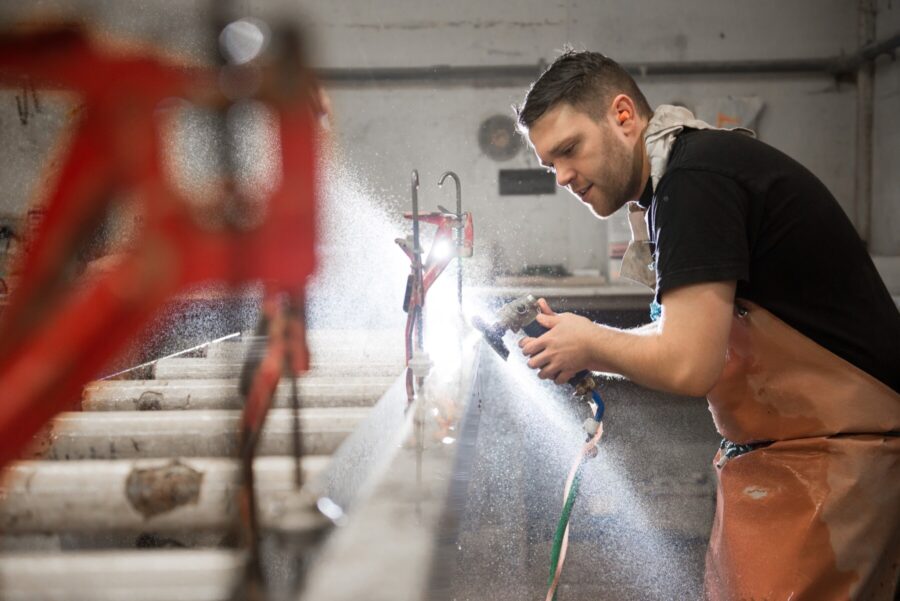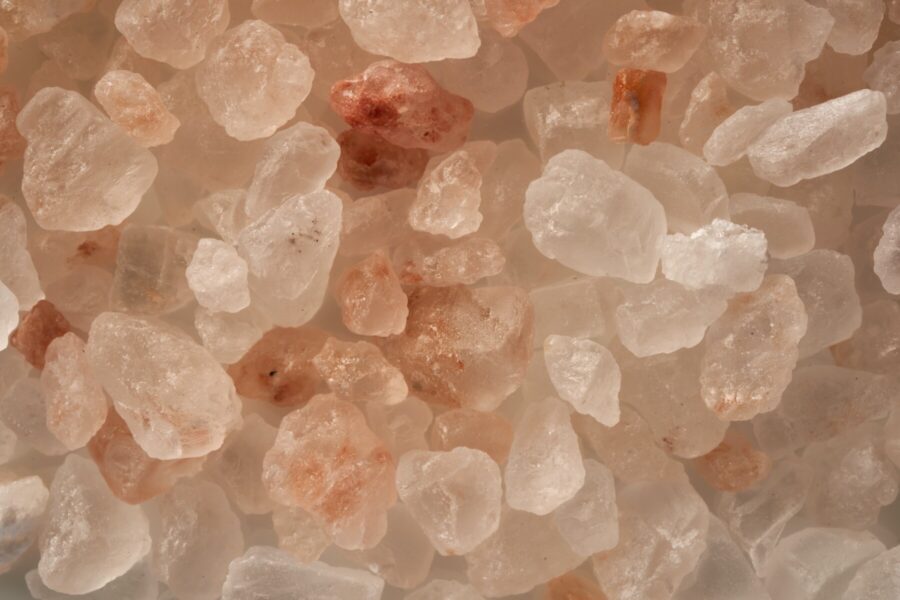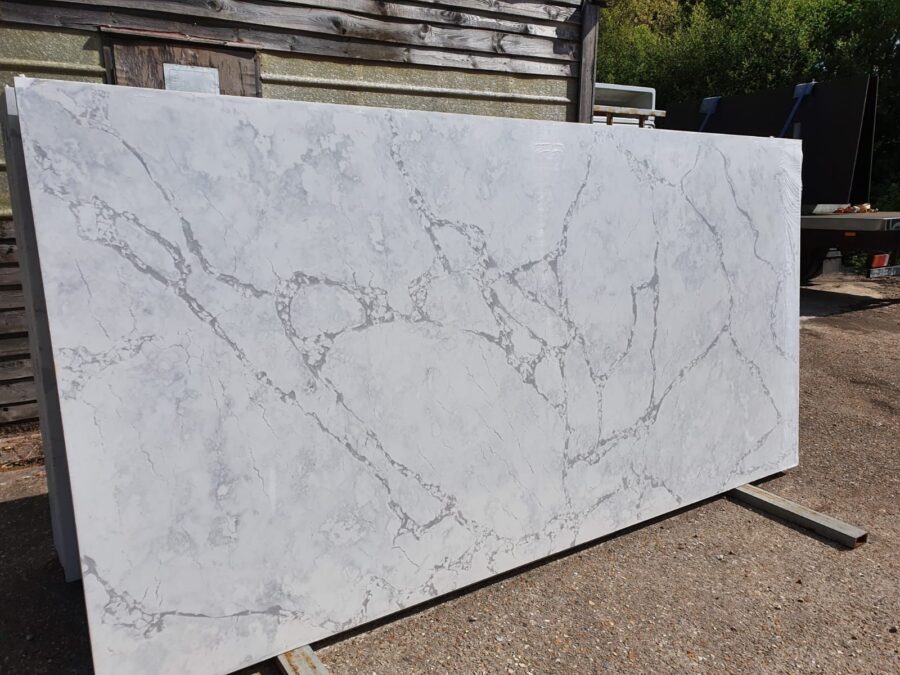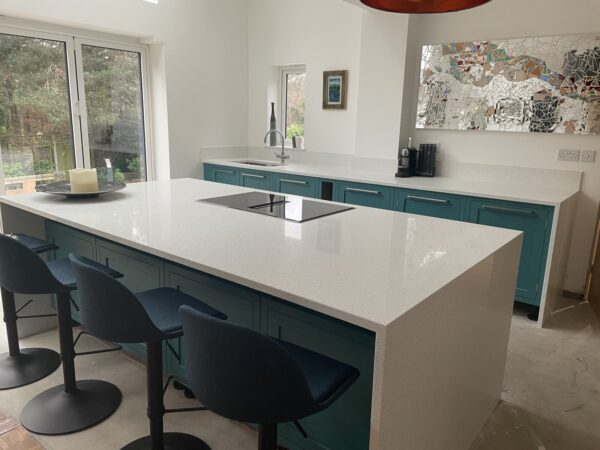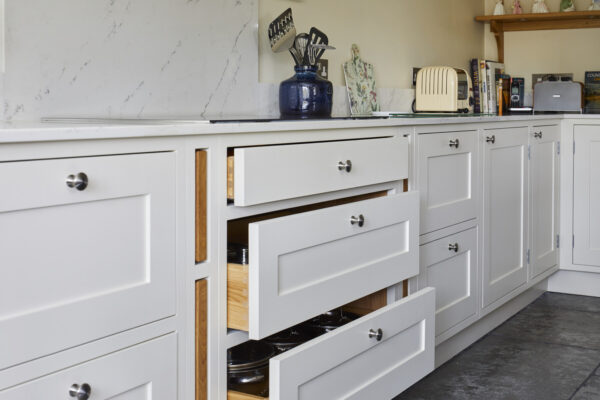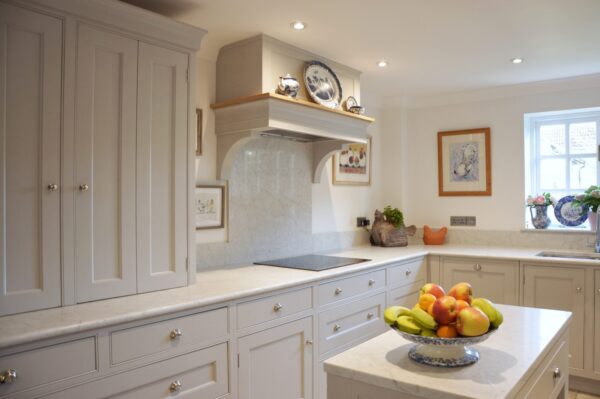How Quartz worktops are made?
Man-made quartz is made from crushed, natural quartz, which is comprised of oxygen and silicon atoms and is one of the most resilient materials on the planet. To make engineered quartz, approximately 90-94% crystalline rock is combined with resins, pigments and polymers using extreme heat and pressure as well as glass and metallic flecks to create a light reflective surface.
For the finished product, coarsely ground quartz produces a flecked appearance, whereas finely ground quartz creates a much smoother look.
Why choose Quartz worktops?
The wide range of colours and aesthetic designs offer styles to suit both traditional and contemporary kitchen or bathroom worktops. Quartz surfaces can mimic natural stone, marble and granite and overcomes any drawbacks of these materials. The qualities of high resistance to staining, easily cleanable and extreme hardness make quartz a desirable surface for any family kitchen or bathroom.
The benefit of using quartz as a material for surfaces is that it is extremely robust and almost impervious to common household products such as juice, wine, coffee, and tomato. It is a non-porous material that is resistant to absorption, preventing the harbouring of bacteria and viruses, making it an ideal surface to maintain cleanliness. However, avoid using solvents that contain methylene chloride, chemicals, dyes, coffee machine descalers, solvents or highly acidic or alkaline products as they will damage your quartz worktops.
No need for polishing or sealing, quartz can be simply cleaned with a damp, soapy cloth. With good care, the beauty of your quartz worktop can last a lifetime!
On top of that, natural quartz is eco-friendly as it is directly extracted from the Earth and quartz brands tend to use local and recycled materials which adds to the environmentally friendly aspect.
Do Quartz kitchen worktops scratch?
With the same durability as concrete, quartz will not scratch, chip, or crack very easily, its strong structure can resist almost anything. If your quartz worktop does require a repair, its even and consistent surface allows for an easy restoration.
Despite its robustness, the resins in quartz can melt and mark when exposed to extremely hot temperatures, so we would advise against placing your hot curling iron or hot pots on your surface, even quartz has its kryptonite! We also suggest using a chopping board when preparing food to avoid any unnecessary trauma to your quartz kitchen worktop.
Are Quartz worktops expensive?
Quartz can be considerably cheaper compared to many natural stone alternatives including some types of granite, marble, and limestone. Marble and limestone tend to require regular maintenance and can be the most expensive.
Landford Stone are showcasing their own competitively priced brand, Oyster Quartz. Hand-picked by stone experts, Oyster Quartz is available in the classic colours of white, grey, marble effect and black. An excellent material choice for kitchen worktops, floors, bathrooms, and cladding.
Picking the right material can be difficult, and only you will be able to decide on the perfect match, materials such as quartz, marble and granite are all notable choices. With over 45 years of experience, our stone experts can help you make your home a home by hand-picking the perfect surface for your next worktop project. Find out more.

